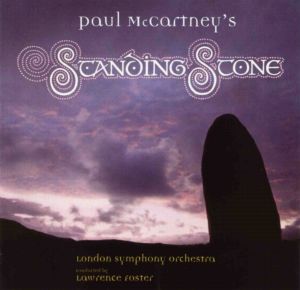
- Format: MP3

Paul McCartney's second classical work, following six years after his first, the Liverpool Oratorio, is a 75-minute "symphonic poem" which, along with an actual poem printed in the CD booklet, tries "to describe the way Celtic man might have wondered about the origins of life and the mystery of existence," as an explanatory note puts it. This musical description is for the most part surprisingly somber and, not so surprisingly episodic. As a composer, even with the resources of the London Symphony Orchestra at his disposal, McCartney assembles his music as though he were constructing an album of pop songs, presenting a series of moods and melodies more notable for their contrasts and discrete effects than for any unity. The composer remains a facile melodist, which is an important quality in classical as well as pop music, and there are aural pleasures here and there. But the musical ideas are merely presented without being woven effectively together or developed. Ambitious as McCartney's organizing principle may have been, it's no wonder that in his note he puts the word "story" in quotation marks.